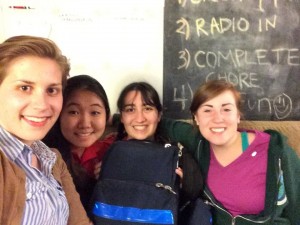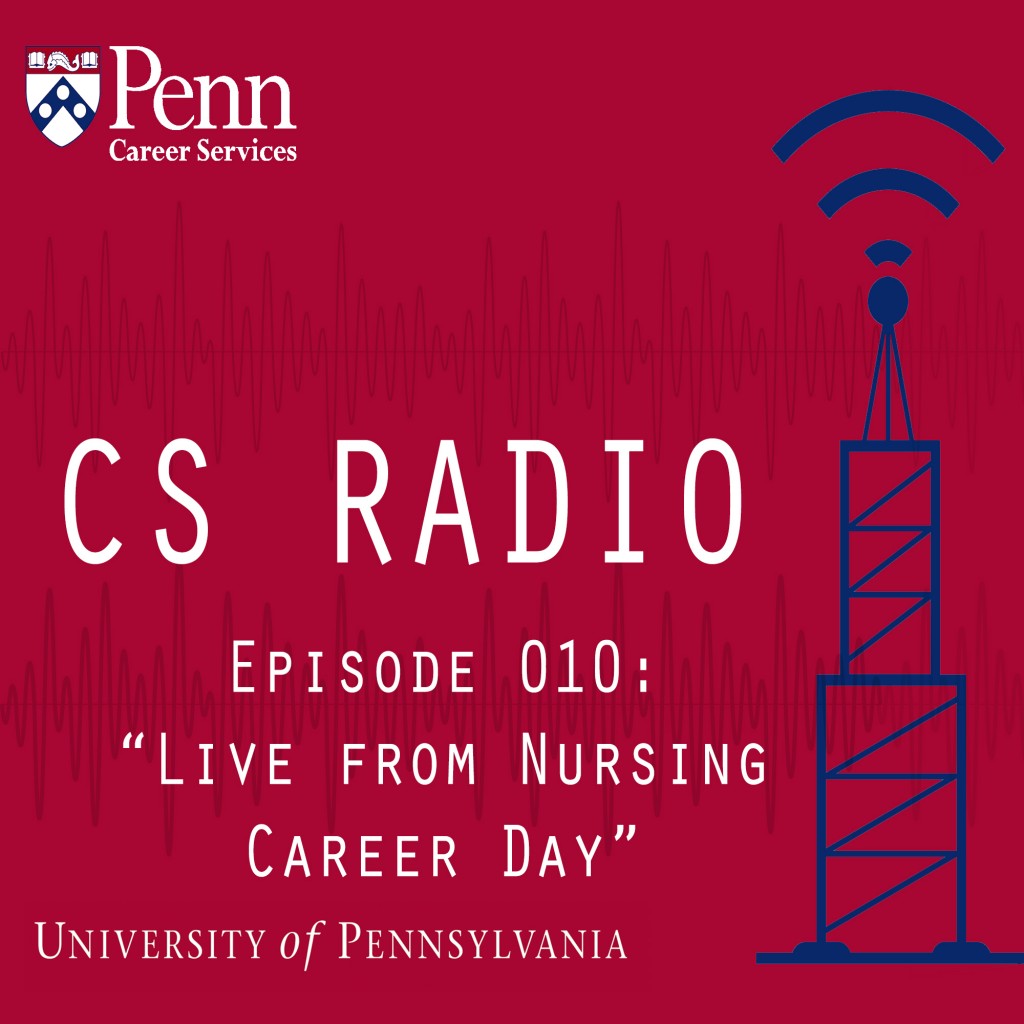Dr. Joseph Barber
Over the past 12 months, members of the Graduate Career Consortium (GCC) from a wide range of academic institutions have been writing posts for the Carpe Careers blog on Inside Higher Ed. The GCC is the professional network of staff members and administrators who provide professional and career development for Ph.D. students and postdoctoral scholars at their colleges and universities. Members of the GCC spend their time helping graduate students and postdocs to achieve their diverse and ever-evolving career goals — whether those goals are focused on faculty positions or on the many other career fields that value advanced degree knowledge, experience, and skills.
The “Carpe Careers” blog is an opportunity for GCC members to share some of their personal advice beyond the walls of their institutions. If you haven’t been keeping up on some of this year’s posts, here are some of the highlights, broken down by topic.
Seeking Advice
Every career path has to start somewhere, and at the beginning of the journey, one of the best places to look is internally. A bit of self-reflection can be helpful to understand your own goals and values, as well as the distinct skills and perspectives that you can draw upon throughout your professional life.
In “Attitude Adjustment,” James Van Wyck thinks about time traveling, offering advice that he would give to his former self at the beginning of his graduate program. He suggests that networking is something you can do close to home at any time in a graduate program, and that students should connect with their peers, faculty members and department administrators to learn from their experiences and about their career goals and journeys. Those students graduating ahead of you will probably be some of the best sources of information you will have to discover your own paths. He advises students to think of themselves more as professionals than students.
Professionals need to develop over time, which is why Tom Magaldi writes about the need to develop skills in “Professional Development on a Ph.D.’s Schedule.” From listening to podcasts and enrolling in MOOCs to gaining hands-on experience by volunteering for academic service, you will have continuing opportunities to learn new skills and apply them — something that will always look good on your application materials. After all, there is no better way to help you figure out which career path is right for you than finding occasions to get a taste for the work that you might be doing in the future.
And in “Developing Your Story,” Stephanie Eberle encourages students to develop a version of an Individual Development Plan to help coordinate skill-building and career-exploration activities over the course of a graduate school program or postdoc appointment. Getting advisers or mentors involved can be helpful, but not essential, to begin to approach professional and career development in a structured and strategic way.
Here are some other posts on the general topic of seeking advice:
Facing Career Doubts
Get Over the Guilt
When Good Advice Is Relative
Don’t Follow Your Passion
Vulnerability: The Most Precious Career Choice
Networking
If you think about networking as a goal-driven effort to obtain helpful information from people who are usually willing to provide it, and as a way for you to help your peers achieve their career goals, then you might find more energy to focus on it. It’s a far better approach than just meeting people randomly and without purpose, which usually results in a general feeling of uneasiness or terror.
Christine Kelly gives the advice to “Always Talk to Strangers” and describes how a chance meeting on a bus helped her be more effective in her work with graduate students. Chance meetings are great, but they are not going to happen as often as meetings that you have actively arranged with your network of faculty members, advisers, alumni, family and friends.
And if you are looking for ways to break the ice when reaching out to contacts, Paula Wishart provides a great summary of “Writing an Introductory Email” to get your networking started. Giving a little careful thought to the greeting, the context, the ask you are making and the subject line can help you maximize the number of people who respond to you.
For more on networking you can also read:
Use Your Words
Networking Gone Bad
Sounding Smarter = Being Smarter
Exploring Career Options
Networking can help you to explore careers. Exploring doesn’t mean you have to decide that academe and a faculty role is not for you. In fact, it could strengthen your desire to be a faculty member at a certain type of institution. Indeed, meeting with faculty members at colleges and universities other than your own is a great idea. Networking will expose you to other career opportunities and might well open a door to a new career path that you had not previously considered or even known about.
In the list below, several writers for the “Carpe Careers” blog have talked about specific nonfaculty career options or the process you can use to explore diverse career fields. And Melanie Sinche talks about plans that are being developed to track career outcomes for Ph.D. students more effectively and consistently in “Tracking Ph.D. Career Paths.”
What’s Next?
The Backup Plan
The Federal Option
Doing It My Way
How to Land a Nonprofessor Position After Grad School
Job Search Advice
The advice that people give students or postdocs applying for faculty positions can, on the surface, seem very different than the advice that they might give them when seeking a variety of nonfaculty positions. However, aside from some industry-specific differences, the main goals are the same. The reader of your application materials and any interviewers must be able to see your potential to add value to their institution or organization. They have to be confident that you know what skills, knowledge or experiences are valued, and they need be confident that you will be a good fit.
In his “Tournament of Bad Job Searching,” Jake Livengood lists some of the approaches that you can take that won’t help your cause when it comes to your nonfaculty-job hunting. And yes, many of those are applicable to the academic job market, too. But don’t get caught up focusing too much on the approaches that you’ve taken that haven’t helped, says Sue Levine in “Self-Talk and Job Hunting,” because you want your inner voice to be supporting your job hunting, not hindering it. A little bit of mindfulness can good, as all job searches can be frustrating at some point.
Here are some of the other posts on the general job search process:
Verbal Origami
Timing Is Everything
The Right References
Tech Tools
Grad Student: You Are Your Own Spokesperson
Interviewing
Your application materials don’t get you the job; they get you the interview for the job. And, in that interview, you still have a lot of work to do to share your story, your skills, your passion and your fit with the organization where you are interviewing. No two interviews are identical, and the type of question and style of the interview will differ depending on the nature of the position and the type of organization.
Graduate students and postdocs can be fairly sure that someone at some point in an interview will ask them about their research. Long, in-depth discussions might be much more appropriate during campus visits for faculty positions, but that doesn’t mean you won’t still need to describe your research in ways that nonspecialists can understand, too. You may not have the benefit of talking about chickens in your answers to questions about your research like I do, but that doesn’t mean you can’t find your own captivating narratives that will help people connect with you and your skills. This is a topic I cover in “Do You Have Mysterious Dragons in Your Research?”
While some interviews are positive experiences, others can turn a little awkward — especially if people ask inappropriate questions. Read my piece “Searching While Pregnant” and Natalie Lundsteen’s “They Aren’t Supposed to Ask That” to learn how to handle some of these questions in an interview.
And not all interviews are super-formal occasions that require weeks of preparation. Stephanie Eberle provides great advice on how to deal with more conversational interviews in “Acing Informal Interviews,” including suggestions on answering “Why do you want this job?” and “Why are you a good fit?” questions.
One way to handle different types of interviews is to feel comfortable with adapting your message to the situation. Jake Livengood talks about how taking an improvisation class can actually help you to “prepare for the unexpected, build confidence, develop self-awareness and add details to questions” that you might face in interviews. I have met with a couple of Ph.D. students at the University of Pennsylvania who have also reported that they found an improvisation class useful. It may be a little outside of your comfort zone, but so is an interview in most cases! Read about “Learning From Improv” to see if this approach might help you, too. And don’t forget to take a look at these other posts on interviewing too:
Interview Like Rembrandt, Not Picasso
Job Applicant Pitfalls



